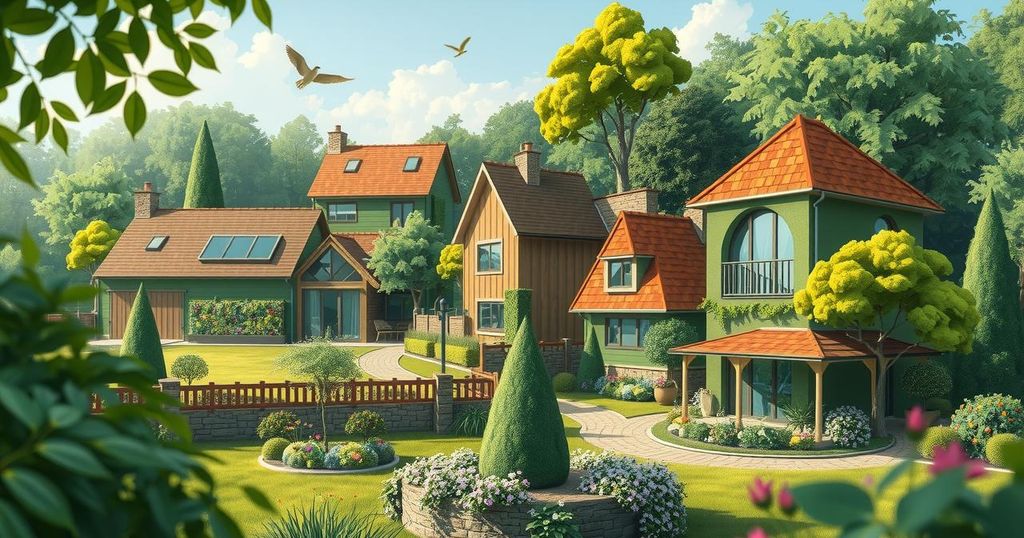Assessing the Impact of Model Green Villages in Rwanda: Progress and Challenges Ahead
Rwanda’s government has established model green villages to house vulnerable populations, improving their safety and access to services post-1994 genocide. However, while families report increased access to modern amenities, they also face economic hardships and food insecurity due to adapted agricultural challenges. Continued research and government support are necessary to ensure sustainable living conditions for residents in these villages.
In the aftermath of the 1994 genocide, Rwandans began to establish homes and farming in available land. The Rwandan government has since aimed to consolidate rural populations into “model villages” to provide better support for vulnerable groups, including the homeless and those living in high-risk, climate-affected areas. These efforts are designed to enhance safety and community resilience against environmental challenges like floods and droughts.
Rwanda, with a population of approximately 14.5 million, has relocated an estimated 62,000 rural families into 14,815 villages, of which 253 are categorized as “model villages.” A number of these villages are environmentally friendly, utilizing solar power and biofuels, alongside practices such as rainwater harvesting and tree planting to promote sustainability.
A study was conducted with a focus on the Rweru Model Green Village, assessing impacts on relocated communities from islands facing flooding and other challenges. While resettlement provided access to improved social services, respondents reported struggles to earn a living and adapt to a new environment due to limited natural and financial resources.
The Rweru Model Green Village was established in 2016 for families from Lake Rweru’s island communities, Sharita and Mazane. Previous residents faced isolation, lacking basic services such as healthcare and education, prompting the desire for relocation due to dangerous conditions.
Interviews from 64 households indicated that while fishing provided sustenance, living on these islands was fraught with challenges such as inadequate drinking water, healthcare access, and safety threats from bordering countries. Approximately 76% of participants perceived their lives prior to relocation as hazardous, spurring long-standing calls for resettlement.
Post-resettlement, many respondents noted improvements in their quality of life, including reduced flood exposure and enhanced access to services. The housing was rated as the most significant improvement, along with better access to markets, healthcare, and education. However, challenges persisted as many individuals reported increased poverty and food insecurity in their new environment, struggling to adapt to the hotter climates, diminished arable land, and limited food production.
The Rwandan government intends to continue the establishment of model villages while ensuring their sustainability. Future research will be essential to ascertain the long-term impacts of these resettlements, particularly regarding economic viability and overall quality of life for the youth in these communities. The government must also address ongoing economic and food security challenges faced by residents to secure their welfare.
The resettlement efforts in Rwanda aim to enhance community safety and resilience against climate change through the establishment of model green villages. While there are significant benefits such as improved housing and access to services, challenges like food insecurity and economic difficulties remain prevalent. Addressing these issues will be crucial for the long-term success of the model village initiative and the welfare of relocated families.
Original Source: www.inkl.com




Post Comment